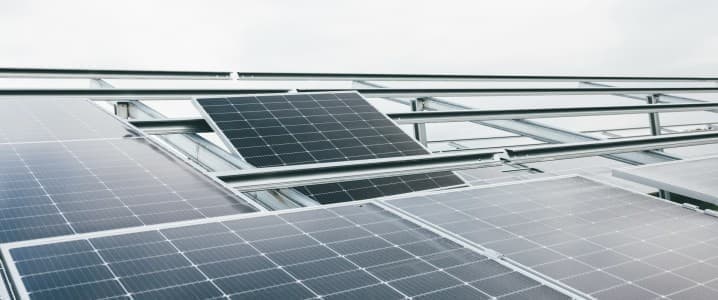Business
U.S. Tariffs Halt Cambodia’s Booming Solar Industry

The rapid growth of Cambodia’s solar industry has come to a sudden halt due to significant shifts in U.S. tariff policy. In 2023, solar exports to the United States reached a remarkable total of $2.4 billion, positioning solar energy as the country’s largest manufacturing export after garments, footwear, and luggage, according to Nikkei Asia. However, this boom has been severely impacted by the reintroduction of high tariffs on Cambodian solar products.
The Biden administration initially provided a two-year waiver on tariffs, but when this expired in mid-2024, the Trump administration imposed duties ranging from 534% to 3,403% on solar modules imported from Cambodia. In contrast, tariffs on solar imports from Malaysia, Thailand, and Vietnam are comparatively lower. The immediate repercussions of this policy shift have been stark: Cambodian solar exports plummeted to just $4.4 million in the first half of 2025, according to customs data, leading to the closure of numerous factories.
Factory Closures and Job Losses
Several prominent companies have shut down operations. Jintek Photovoltaic Technology, once a large exporter to U.S. buyers, has ceased production. Similarly, Solar Long PV Tech, which supplied BYD America, has also closed its doors after its management departed from Cambodia. Hounen Solar has reduced its workforce to a mere handful of employees.
Sothoeuth, a manager at one of the affected companies, explained, “My company is temporarily closed this year, and it is because of the tariff. We are not sure if we will restart the company again or not. It depends on the tariff.” Previously, he supervised 300 employees who benefitted from higher wages compared to those in the garment sector.
While many companies have struggled, a few have attempted to adapt to the new tariff landscape. Venus Energy and VCOM Power System have shifted their production focus from solar modules to thin-film panels, which incur a lower duty of 19%. Although these panels are more expensive to manufacture, they remain a viable option for the time being. Thang Menghout, human resources director at VCOM, noted, “Before, we had five companies, but now we have only two. If there will be a higher tariff, we cannot do it anymore.”
Impact on Workers and the Local Economy
The decline in the solar industry has had a significant impact on workers. Factories in this sector once offered competitive wages and attracted individuals with promises of advanced technology jobs. As these factories close, many workers have reverted to lower-paying positions.
Men Samet, a former employee of Jintek, reflected on the drastic changes, stating, “There was no demand to make solar panels because the U.S. stopped ordering. Then, they reduced workers and salaries. If solar came back, we would go back. We had good managers and high salaries.” Currently, Samet works as a fruit seller in Phnom Penh, a stark contrast to his previous employment.
As Cambodia grapples with the consequences of U.S. tariff policies, the future of its solar industry remains uncertain. Without a change in trade relations, the sector that once promised prosperity for many may continue to struggle. The Cambodian government and industry leaders are now faced with the challenge of navigating these tariffs while seeking opportunities for recovery and growth in a changing global market.
-

 Entertainment3 months ago
Entertainment3 months agoAnn Ming Reflects on ITV’s ‘I Fought the Law’ Drama
-

 Entertainment4 months ago
Entertainment4 months agoKate Garraway Sells £2 Million Home Amid Financial Struggles
-

 Health3 months ago
Health3 months agoKatie Price Faces New Health Concerns After Cancer Symptoms Resurface
-

 Entertainment3 months ago
Entertainment3 months agoCoronation Street’s Carl Webster Faces Trouble with New Affairs
-

 Entertainment3 months ago
Entertainment3 months agoWhere is Tinder Swindler Simon Leviev? Latest Updates Revealed
-

 Entertainment4 months ago
Entertainment4 months agoMarkiplier Addresses AI Controversy During Livestream Response
-

 Science1 month ago
Science1 month agoBrian Cox Addresses Claims of Alien Probe in 3I/ATLAS Discovery
-

 World2 weeks ago
World2 weeks agoBailey Announces Heartbreaking Split from Rebecca After Reunion
-

 Health4 months ago
Health4 months agoCarol Vorderman Reflects on Health Scare and Family Support
-

 Entertainment4 months ago
Entertainment4 months agoKim Cattrall Posts Cryptic Message After HBO’s Sequel Cancellation
-

 Entertainment3 months ago
Entertainment3 months agoOlivia Attwood Opens Up About Fallout with Former Best Friend
-

 Entertainment2 weeks ago
Entertainment2 weeks agoCoronation Street Fans React as Todd Faces Heartbreaking Choice





















